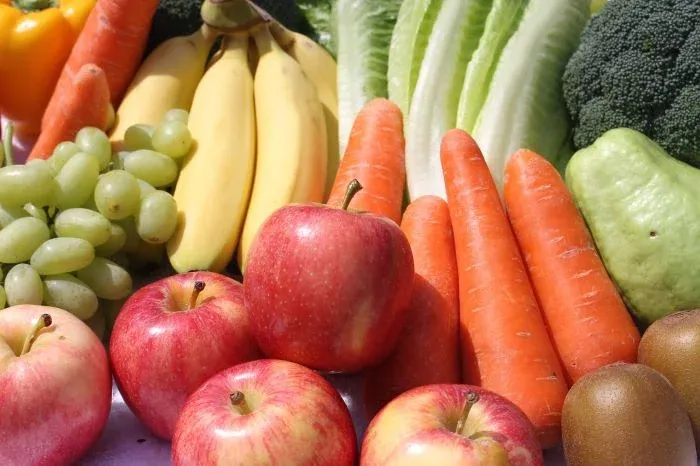Gut Feeling Guidelines for Fruit and Vegetable Juices
Gut Feeling Guidelines for Fruit and Vegetable Juices
 |
| (Stock Photo: Vegetable Juices) |
In a world where health-conscious choices are becoming increasingly prevalent, the popularity of fruit and vegetable juices has soared. Many individuals are turning to these vibrant concoctions as a convenient and tasty way to boost their nutrient intake. In this article, we delve into the nutritional powerhouse that fruit and vegetable juices can be, exploring their benefits, debunking myths, and providing practical tips for maximizing their advantages.
The Nutritional Powerhouse: Fruit Juices
Fruit juices are not just delicious; they pack a nutritional punch too. From the vitamin C in citrus fruits to the antioxidant-rich berries, different fruits offer a diverse range of health benefits. Incorporating a variety of fruit juices into your diet ensures a spectrum of vitamins and antioxidants, promoting overall well-being.
Vegetable Juices: A Green Elixir
On the other hand, vegetable juices, often underestimated, are the green elixirs that can transform your health. Packed with essential nutrients like folate, potassium, and fiber, these juices contribute to improved digestion, enhanced energy levels, and a strengthened immune system.
Rules for Maximum Benefits
Rule 1: Opt for Fresh and Organic
The first rule to extract the maximum benefits from your juices is to choose fresh and organic produce. While convenience often lures us towards packaged juices, the nutritional content in fresh fruits and vegetables diminishes during processing. Opting for organic varieties ensures that you avoid harmful pesticides and chemicals.
Rule 2: Limit Added Sweeteners
While the natural sugars present in fruits are a welcome addition to your diet, excess added sugars can negate the positive effects of juicing. Limiting or avoiding additional sweeteners keeps your juice a wholesome and healthy beverage.
Rule 3: Timing Matters
When you consume your juices matters just as much as what you consume. Consuming fruit juices in the morning provides a refreshing start, while vegetable juices in the evening can complement your dinner. Understanding the timing optimizes digestion and nutrient absorption.
 |
| (Stock Photo: Fresh Fruits and Vegetables) |
Busting Common Juicing Myths
In the realm of juicing, several myths persist. One such myth is the belief that fruit juices are always a healthy choice. However, excessive fruit consumption can lead to an influx of sugars. Balancing fruit and vegetable juices is key to reaping their benefits without compromising on health.
Juicing for Specific Health Goals
Tailoring your juices to specific health goals can enhance their effectiveness. For those aiming for weight loss, incorporating metabolism-boosting ingredients like ginger and lemon can be beneficial. Similarly, creating immunity-boosting blends with ingredients like spinach and kale supports overall health.
DIY Juice Recipes
Creating your own juices allows for customization based on taste preferences and health goals. A simple detox juice with cucumber, mint, and lemon refreshes the palate, while a tropical blend of pineapple, mango, and coconut water transports you to a tropical paradise.
Juicing Equipment: Blender vs. Juicer
Choosing between a blender and a juicer can be a perplexing decision. Blenders retain the fiber content, making smoothies more filling, while juicers extract pure liquid. Your choice depends on whether you prefer a thicker, fiber-rich drink or a smoother, pulp-free juice.
The Impact of Cold-Pressed Juices
Cold-pressed juices, despite their higher price tag, have gained popularity due to their perceived health benefits. The cold-pressing method minimizes heat exposure, preserving more nutrients. Whether the added cost justifies the potential benefits depends on individual priorities and budgets.
Juice Cleanses: A Closer Look
Juice cleanses, touted as a quick fix for detoxification, are a subject of debate among health experts. While proponents argue for their ability to kickstart a healthier lifestyle, critics highlight potential nutrient deficiencies and short-term results. Before embarking on a cleanse, it's crucial to weigh the pros and cons.
Sustainability in Juicing
As the world grapples with environmental concerns, it's essential to consider the sustainability of our choices, even in juicing. Opting for locally sourced, seasonal produce and recycling juice pulp are simple steps toward reducing the environmental impact of your juicing habits.
In conclusion, the world of fruit and vegetable juices is diverse and exciting, offering a plethora of options to enhance your well-being. By following the three thumb rules of opting for fresh and organic produce, limiting added sweeteners, and understanding the importance of timing, you can make the most of these vibrant elixirs. Embrace the variety, experiment with DIY recipes, and remember that balance is the key to unlocking the full potential of fruit and vegetable juices.
 |
| (Stock Photo: Juice with Fruits) |
FAQs
Q: Can I store freshly made juices for later consumption?
A: While it's best to consume juices immediately to retain maximum nutrients, storing them in airtight containers in the refrigerator for up to 24 hours is acceptable.
Q: Are there specific fruits and vegetables to avoid in juices?
A: Certain fruits with high sugar content should be consumed in moderation, and it's advisable to limit the use of starchy vegetables like potatoes in juices.
Q: How often should I do a juice cleanse?
A: Juice cleanses should be approached with caution and not done frequently. Consult with a healthcare professional before considering a cleanse.
Q: Can children benefit from fruit and vegetable juices?
A: Yes, but moderation is key. Ensure that juices are a complement to a balanced diet, not a replacement for whole fruits and vegetables.
Q: Is there an eco-friendly way to dispose of juice pulp?
A: Yes, composting is an excellent eco-friendly option for disposing of juice pulp, turning it into nutrient-rich soil for plants.



Comments
Post a Comment